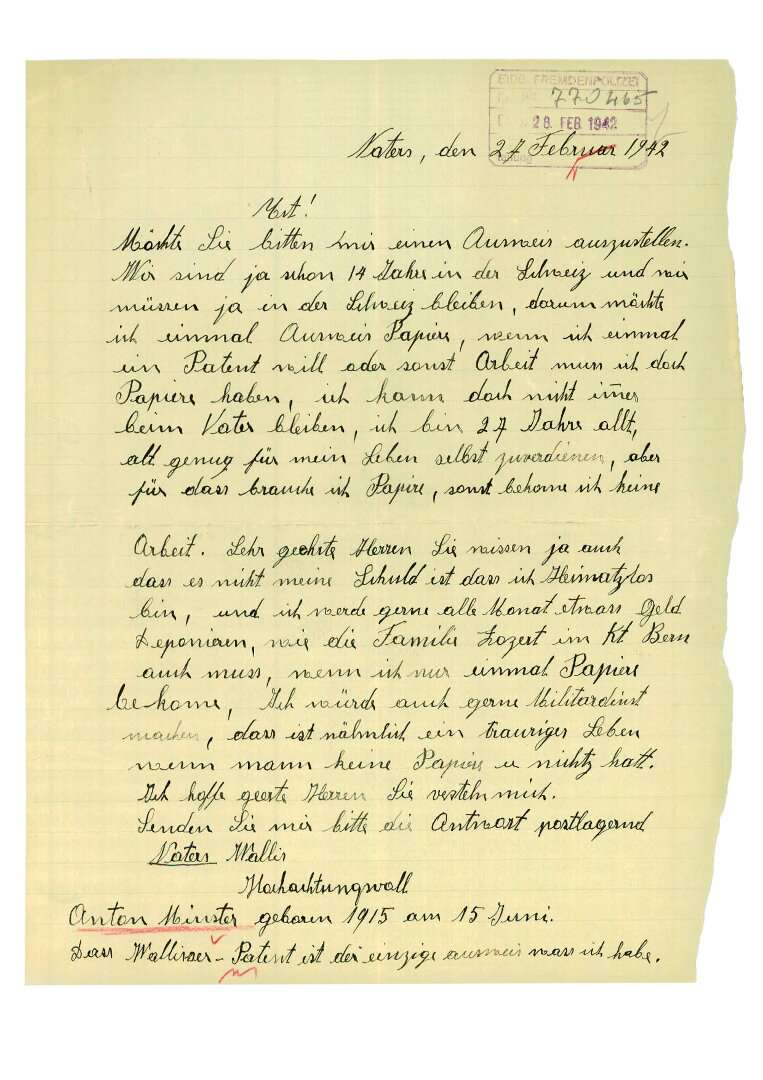Decades-long struggle for the right to a homeland
The letter by Anton Minster gives an indication of the beleaguered situation in which the family – which, along with the father, Carlo Minster, born in 1892, was made up of another five siblings born between 1911 and 1926 – found itself. The widower Carlo Minster was deported with his six children by the Italian authorities to Switzerland in 1929. At the beginning of April 1930, the Swiss deported the family back to Italy, where they were detained by the Italian police and incarcerated for 10 days in Domodossola, from where they were once again forced to cross the Swiss border at the snow-covered Simplon Pass in the dead of night. Finally, the Italian and Swiss authorities agreed to leave the family in Switzerland if, in return, Italy would refrain from further deportations.
Immediately, the family were forced to hand over all their documents. Since then, Carlo Minster unstintingly tried to obtain Swiss passports by making regularly submissions, at times with the help of lawyers. But not a single canton was willing to accept the ‘stateless’ persons. Earning a living – either through mending baskets and umbrellas or as musicians – proved difficult as a result. In January 1936 Carlo Minster wrote: ‘I earn my living honestly & completely above board & yet they look at me so suspiciously as soon as they demand to see my papers & I can’t present any.’
Thanks to his tenacity, Carlo Minster was able to ensure that he and his family could stay in Switzerland, thus avoiding persecution by the National Socialist regime or the Italian Fascists. A more secure status, like the one granted, subject to certain conditions, to the Zozerd family assigned to the Canton of Bern, was first obtained in 1943, when the family was sent to the Canton of Valais. There the men were to be drafted into performing forced labour until the end of the war. Carlo Minster’s grandchildren were the first members of the family to gain Swiss citizenship







